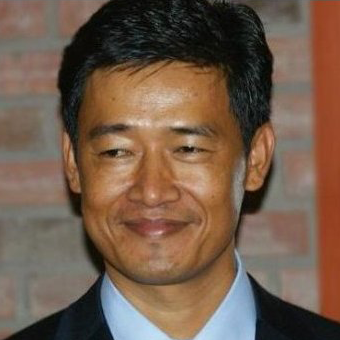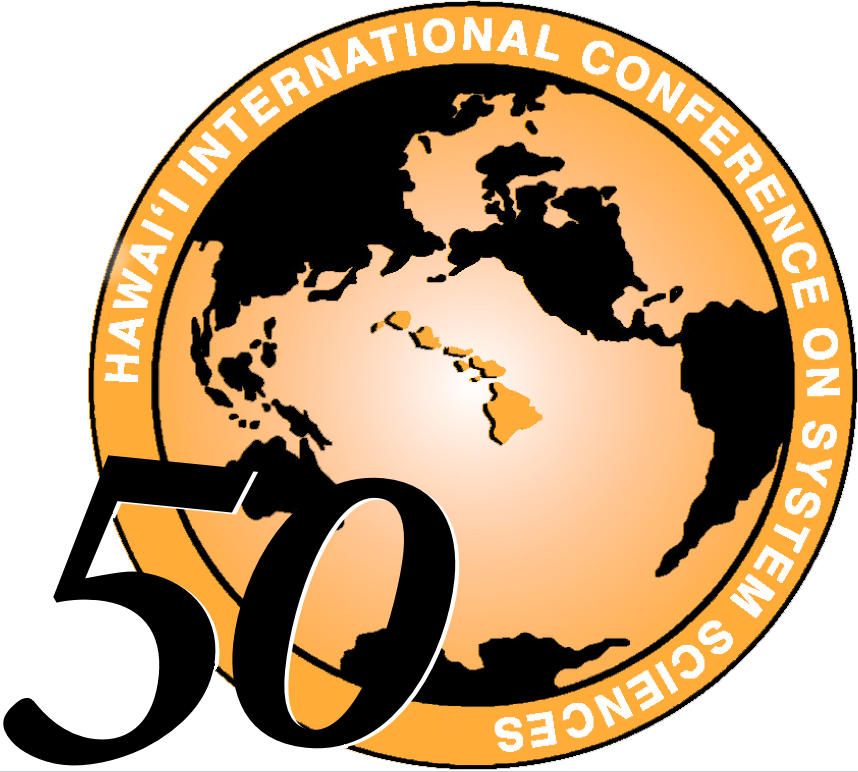HICSS - 50 E-Government Track
50th Hawaii International Conference on System Sciences
January 4-7, 2017 - Hilton Waikoloa Village, Big Island, HI, USA
Overview
Minitracks
Symposia and Workshops
Other Links
Information and Communication Technologies for Development (ICT4D): ICTs and Sustainable Development


Minitrack Description
In 2012 Walsham published an article with the question “Are we making a better world with ICTs?”. Walsham encouraged the information systems community to explore how ICTs could help improve individual capabilities and opportunities to use technology to improve their lives. These questions are at the core of the Information and communication technologies for development (ICT4D) field that focuses on the use of ICT to foster positive changes for individuals, communities or nations. The focus is on the lives of the poor and marginalized by improving their economy, health, security, education and so on. The field is multidisciplinary and often includes theories from fields such as information systems, development studies, business and political science.
That ICTs can foster a positive development is now widely accepted in the research community. The question now is rather how ICT can contribute to the betterment of the poor and marginalized. The mechanics and processes by which ICT lead to development is not fully understood. There is also a shortage in the understanding of the role of different stakeholders in development efforts using ICT. International donor agencies, national government and non-government organizations (NGOs) all play an important role. But we need a clearer understanding on the effectiveness of different development efforts undertaken by the different actors, and the role that different actors can and should have in the development process.
We welcome theoretical and conceptual discussions as well as empirical studies. The papers should strive to provide future guidance to the field. We do not only look for success stories; criticism of the field and of existing approaches may be just as insightful as guidance for future efforts.
Minitrack topics include, but are not limited to:
- The role of government and NGOs in ICT4D
- The role that the international community should play
- The role of national ICT policies for development
- The role of social media in ICT4D
- The role of champions and mediators
- Cases of government-led ICT4D implementations in developing countries
- What are the theories that should be used in the assessment of ICT4D projects
- What are the theories that should guide ICT4D research and practice
- What are the theories to understand the role of technology in development
- How ICTs can enable people participate in political discourses to encourage change
- How ICT4D interventions can be measures and assessed
- How ICT can be instrumental to facilitate sustainable development
More information on the mini-track chairs:
Devinder Thapa, PhD, is an Associate Professor at University of Agder, Norway. He has completed his PhD in Industrial Engineering in 2008 from Ajou University, South Korea, and PhD in Information Systems in 2012 from University of Agder, Norway. His research interests are ICT4D, Information Security, and Sociotechnical Systems. His work has been published in international conferences such as Winter Simulation Conference, Summer Simulation Conference, IFIP WG 9.4 Conference, ICIS, DESRIST, and Hawaii International Conference on System Sciences(HICSS). He has published in international journals such as Springer Lecture Notes in Computer Science, International Journal of Control, Automation, and Systems (IJCAS), Communications of the AIS (CAIS), Electronic Journal of Information Systems in Developing Countries (EJISDC), Information Technology for Development (ITD), Information Technology and International Development (ITID), and Journal of Pattern Recognition Letters.
Mathias Hatakka, PhD, is an assistant professor at the Örebro University School of Business where he teaches system development courses. He also chairs the Master’s program in IS. His major areas of research are Information- and Communication Technologies for Development (ICT4D) and ICT supported education. Since 2006 he has worked in several e-learning projects in Bangladesh, Sri Lanka, Kenya and Sweden. The focus of his thesis was on the link between ICT and human development, and more specifically on the use of Amartya Sen’s Capability Approach as a tool to evaluate this link. The Capability Approach was used to evaluate the outcomes in the form of capabilities that different ICT supported education projects have enabled for students and teachers. At present he is also involved in several research networks in ICT4D, for example, the Special Interest Group on Global Development (AIS SIG GlobDev) and IFIP WG 9.4 (Social Implications of Computers in Developing Countries).
Co-Chairs
Devinder Thapa
(Primary Contact)
University of Agder
Department of Information Systems
Service box 422
4604 Kristiansand, Norway
Building ‘H’, Room No:H1-039
Phone: +47 3814-1419
Email: devinder.thapa@uia.no
Mathias Hatakka
Dalarna University
SE-791 88 Falun, Sweden
Phone: +46-23-77 80 00
(switch board)
Email: mht@du.se
